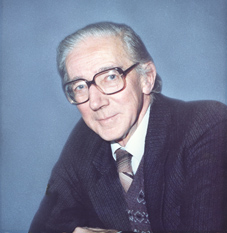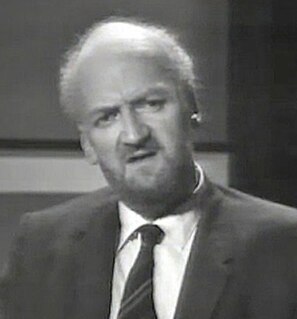
John Langshaw Austin was a British philosopher of language and leading proponent of ordinary language philosophy, perhaps best known for developing the theory of speech acts.

Bernard Bosanquet was an English philosopher and political theorist, and an influential figure on matters of political and social policy in the late 19th and early 20th centuries. His work influenced but was later subject to criticism by many thinkers, notably Bertrand Russell, John Dewey and William James. Bernard was the husband of Helen Bosanquet, the leader of the Charity Organisation Society.

Charlie Dunbar Broad, usually cited as C. D. Broad, was an English epistemologist, historian of philosophy, philosopher of science, moral philosopher, and writer on the philosophical aspects of psychical research. He was known for his thorough and dispassionate examinations of arguments in such works as Scientific Thought (1923), The Mind and Its Place in Nature (1925), and Examination of McTaggart's Philosophy.
Walter Bryce Gallie was a Scottish social theorist, political theorist, and philosopher.

William Sweet is a Canadian philosopher, and a past president of the Canadian Philosophical Association and of the Canadian Theological Society.

Alfred Edward Taylor, usually cited as A. E. Taylor, was a British idealist philosopher most famous for his contributions to the philosophy of idealism in his writings on metaphysics, the philosophy of religion, moral philosophy, and the scholarship of Plato. He was a fellow of the British Academy (1911) and president of the Aristotelian Society from 1928 to 1929. At Oxford he was made an honorary fellow of New College in 1931. In an age of universal upheaval and strife, he was a notable defender of Idealism in the Anglo-Saxon world.

Peter Lipton was the Hans Rausing Professor and Head of the Department of History and Philosophy of Science at Cambridge University, and a fellow of King's College, until his unexpected death in November 2007. According to his obituary on the Cambridge web site, he was "recognized as one of the leading philosophers of science and epistemologists in the world."
Metaphysics is the branch of philosophy that investigates principles of reality transcending those of any particular science. Cosmology and ontology are traditional branches of metaphysics. It is concerned with explaining the fundamental nature of being and the world. Someone who studies metaphysics can be called either a "metaphysician" or a "metaphysicist".

George Edward Hughes was an Irish-born New Zealand philosopher and logician whose principal scholarly works were concerned with modal logic and medieval philosophy.
Geoffrey Reginald Gilchrist Mure was a British idealist philosopher and Oxford academic, who specialised in the works of the German philosopher, Hegel.
Jeremy Nicholas Butterfield FBA is a philosopher at the University of Cambridge, noted particularly for his work on philosophical aspects of quantum theory, relativity theory and classical mechanics.

British philosophy refers to the philosophical tradition of the British people. "The native characteristics of British philosophy are these: common sense, dislike of complication, a strong preference for the concrete over the abstract and a certain awkward honesty of method in which an occasional pearl of poetry is embedded".
The following is a bibliography of Charles W. Morris.

George Dawes Hicks FBA was a British philosopher who was the first Professor of Moral Philosophy at University College, London from 1904 until 1928 and professor emeritus thereafter until his death.

Hilda Diana Oakeley was a British philosopher, educationalist and author.
Herbert Wildon Carr was a British philosopher, Professor of Philosophy, King's College, London from 1918 until 1925 and Visiting Professor at the University of Southern California from 1925 until his death.

Martha Kneale was a British philosopher.

Alan Richard White was an analytic philosopher who worked mainly in epistemology, the philosophy of mind, and, latterly, legal philosophy. Peter Hacker notes that he was "the most skillful developer of Rylean ... ideas in philosophical psychology" and that "if anyone surpassed Austin in subtlety and refinement in the discrimination of grammatical differences, it was White." Richard Swinburne remarks that "during the heyday of 'ordinary language philosophy' no tongue practised it better."
Leonard James Russell, FBA was a British philosopher. He was Professor of Philosophy at the University of Birmingham from 1925 to 1950.











